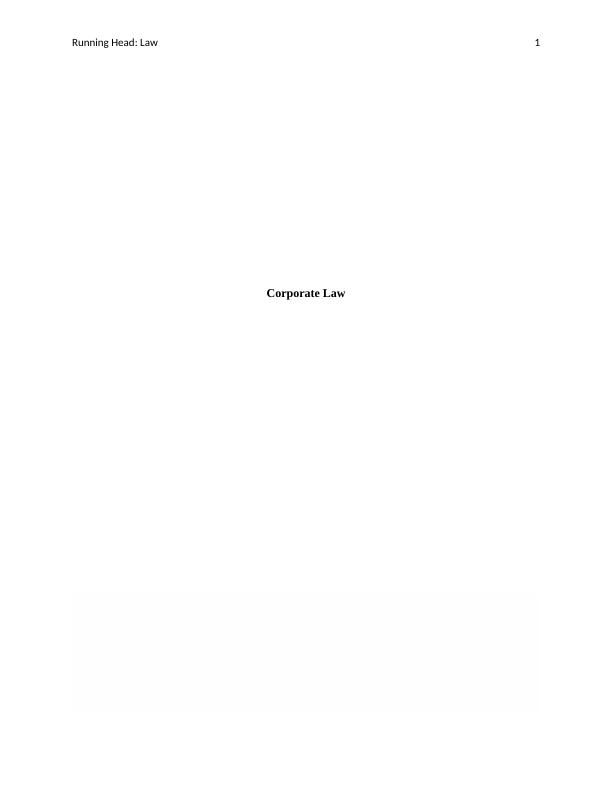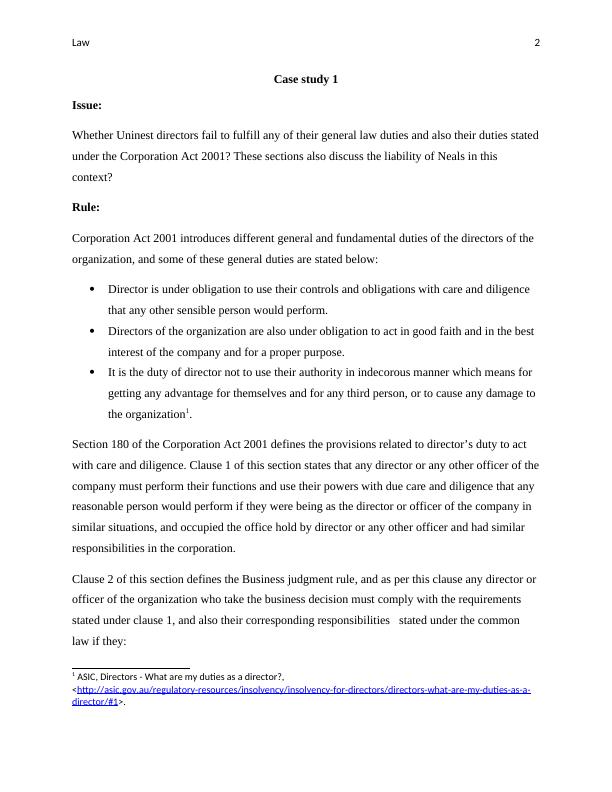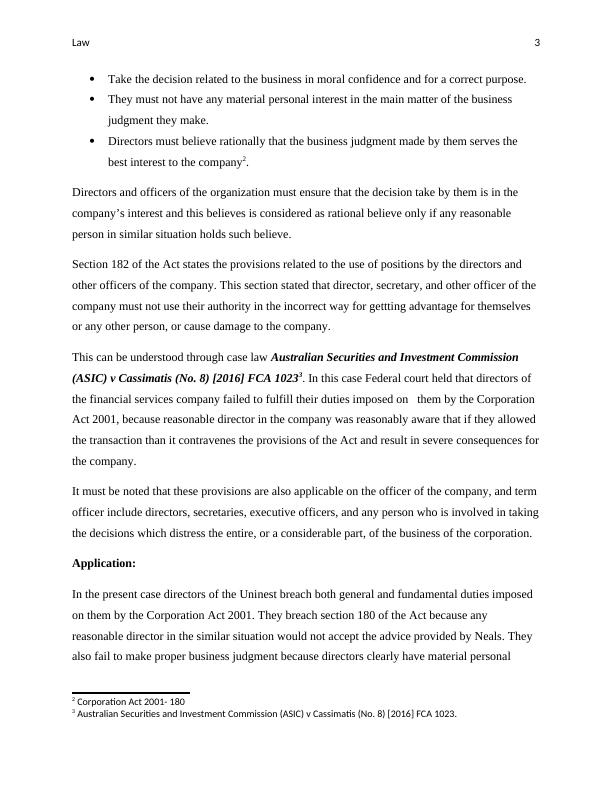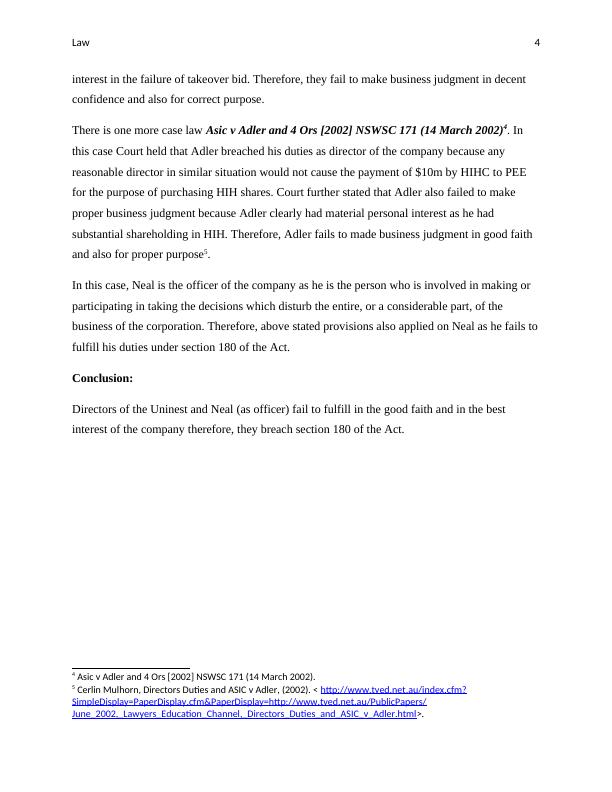Corporate Law Case Studies: Breach of Director's Duties under Corporation Act 2001
Students will be presented with three case studies on directors' and officers' duties incorporating legal issues taken from Modules 3 and 4 up to and including Topic 4.1. Students are to answer either a single question or a series of questions about each of these case studies in approximately 2 500 - 3 000 words in total and submit their written responses via Turnitin
Added on 2023-06-13
About This Document
Corporate Law Case Studies: Breach of Director's Duties under Corporation Act 2001
Students will be presented with three case studies on directors' and officers' duties incorporating legal issues taken from Modules 3 and 4 up to and including Topic 4.1. Students are to answer either a single question or a series of questions about each of these case studies in approximately 2 500 - 3 000 words in total and submit their written responses via Turnitin
Added on 2023-06-13
End of preview
Want to access all the pages? Upload your documents or become a member.




